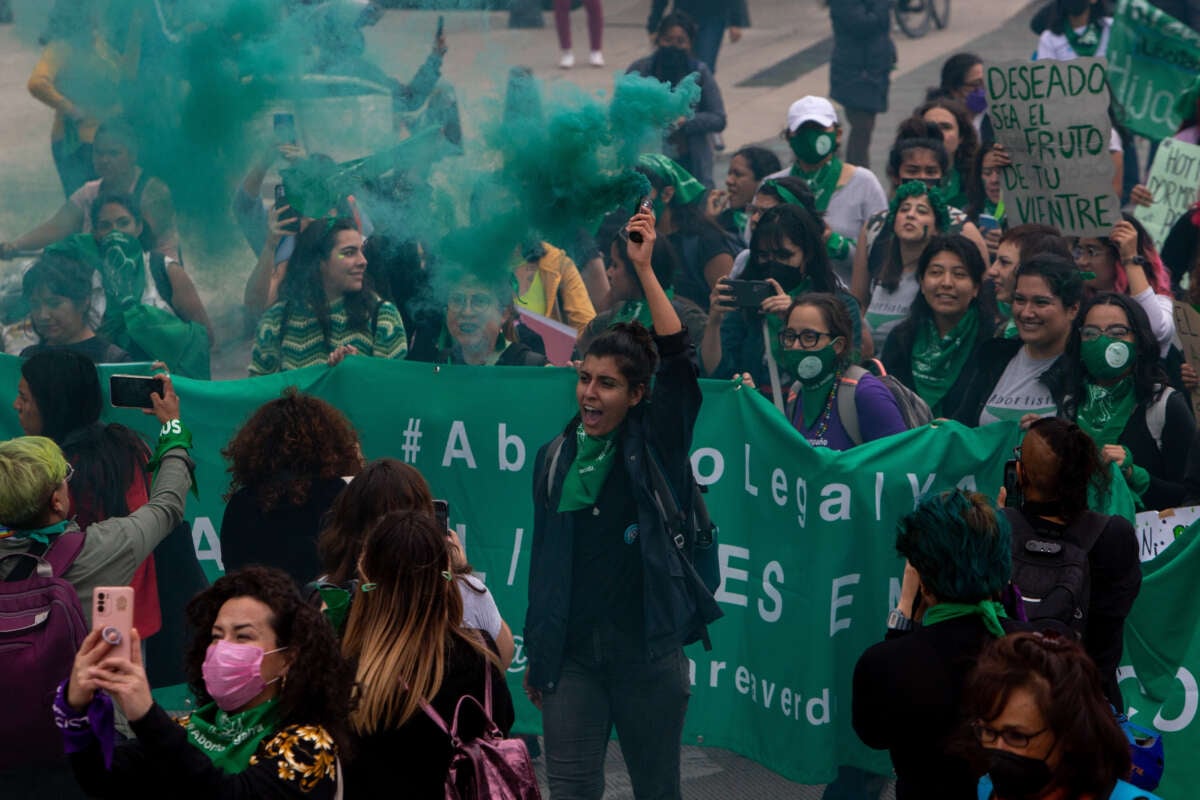On Wednesday, Mexico’s Supreme Court ruled to decriminalize abortion at the federal level, holding that national laws prohibiting the procedure are unconstitutional. The ruling not only orders that abortion be removed from penal codes, but requires that federal public health institutions offer abortion procedures.
“Today is a day of victory and justice for Mexican women!” Mexico’s National Institute for Women wrote on social media.
The decision comes two years after the court ruled that abortion is not a crime in Coahuila, a state on the Texas border. While that ruling prompted a state-by-state process of decriminalizing the procedure, abortion was still criminalized in twenty Mexican states before the Supreme Court’s decision on Wednesday. These states will now have to abide with the court’s order and decriminalize the procedure.
Former Supreme Court justice Sen. Olga Sánchez Cordero celebrated the ruling, writing on social media that the court’s decision represents a “move towards a more just society, in which the rights of everyone are respected.”
Reproductive rights activists in Latin America have worked to expand abortion rights over the past few years, with success in Argentina in 2020 and Colombia in 2022. “Globally, there is an overwhelming trend towards the liberalization of abortion laws,” the Center for Reproductive Rights notes on its website.
The reforms in Mexico and other Latin American countries contrast significantly with developments in the United States, where the federal Supreme Court ruled last year to overturn abortion protections nationwide. Mexico has since become a safe haven for U.S. residents from Texas and other states who are seeking abortion access.
Verónica Cruz, an abortion rights activist in Mexico, told CNN that her organization, Las Libres, is increasingly receiving calls from concerned Americans who are turning to Mexico for abortion access. “It surprised me that Mexico is going forward, and the United States is going backward,” Cruz said. “I never imagined that.”
In fact, the U.S. is one of only four countries worldwide that have rolled back the legality of abortion. “The devastating regression on abortion rights in the United States makes the country a stark outlier to the global trend toward liberalization,” the Center for Reproductive Rights said in a statement.
Even before the U.S. Supreme Court rolled back the nationwide right to abortion, some Americans were forced to travel to other states — and even out of the country — to access abortion care. The Mexico Supreme Court decision in 2021, which ruled that abortion was not a crime in Coahuila, came just one week after Texas’s “bounty hunter” law took effect. The Texas law, which is currently being challenged in court, prohibits abortions of fetuses with detectable cardiac activity and allows any private citizen to sue Texas abortion providers who violate the law, as well as any person who “aids or abets” an abortion after six weeks of pregnancy.
“Before September we would receive 5-7 American women per month. After September, we received 7-10 per week,” Sandra Cardona, a reproductive rights activist in Mexico who helps run “Red Necesito Abortar,” told CNN. “On the day of the Supreme Court decision, we received 70 messages. And things have continued like that, without slowing down.”
